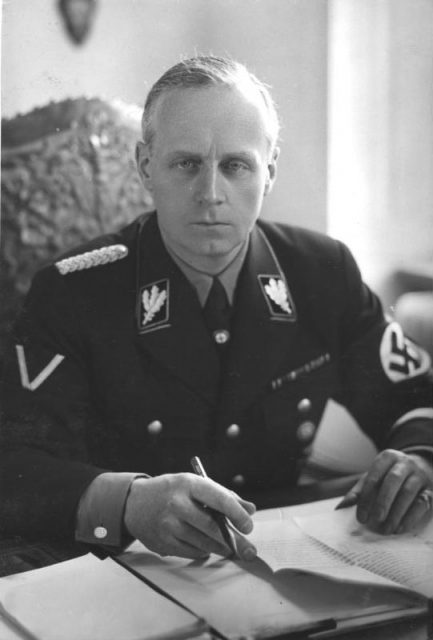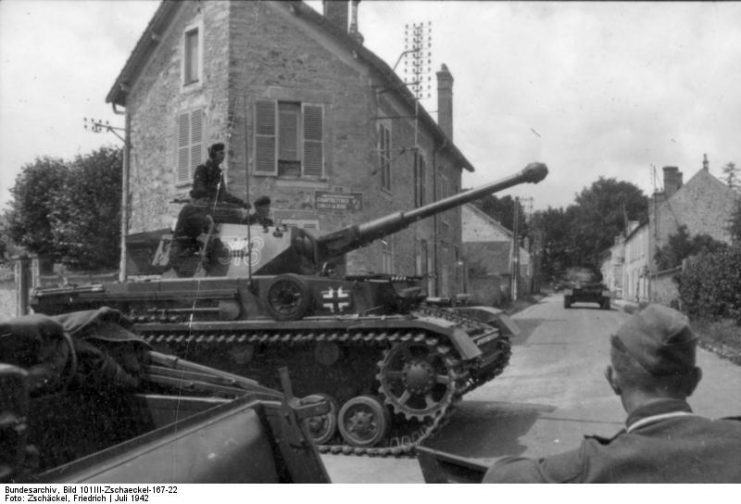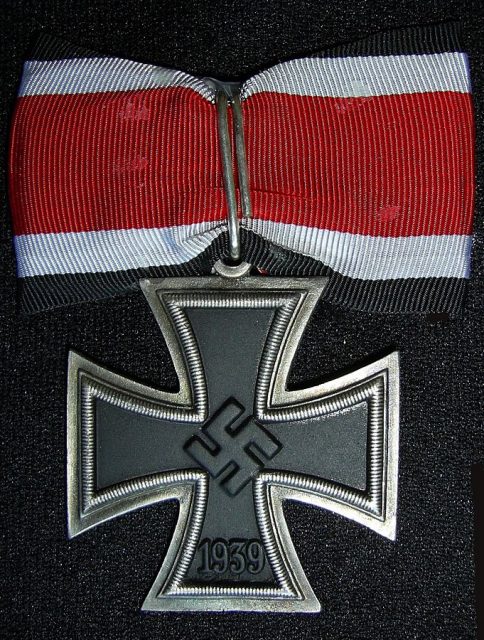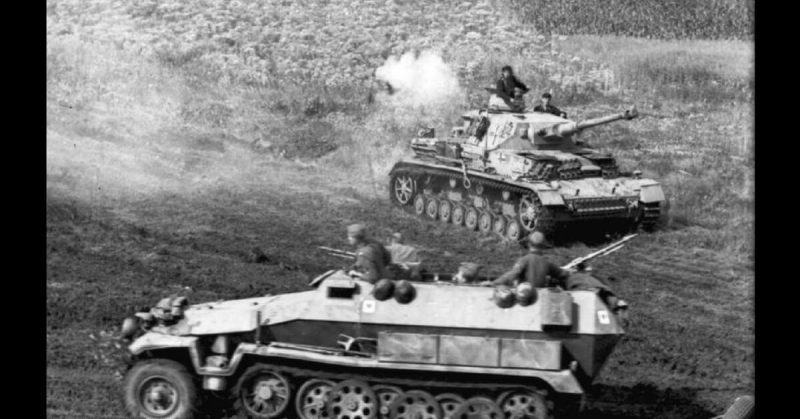Joachim von Ribbentrop is well known as the Nazi diplomat and foreign minister who negotiated the non-aggression pact between Germany and the Soviet Union and the alliance with Italy, both in 1939. His son Rudolf is less known, though he also served the Reich.
Born in 1921, Rudolf accompanied his father to Britain when appointed Ambassador to the Court of St James in 1936. He spent a year at Westminster School in London. The future British diplomat Brian Urquhart studied with him and later described Rudolf as a ‘doltish, surly and arrogant’ pupil.
According to Urquhart Ribbentrop arrived at school each day in a plum-colored Mercedes-Benz, accompanied by another, to the cries of ‘Heil Hitler,’ shouted by the chauffeurs. Though he behaved like a member of the nobility, the Ribbentrop was not of aristocratic stock. The ‘von’ in his name was an affectation.

Peter Ustinov, the future actor, was also a fellow pupil. He was the cause of Ribbentrop’s hasty removal from the school when he revealed the presence of the ambassador’s son to The Times.
In 1960 von Ribbentrop married Ilse-Marie Frein Munchhausen (1914 – 2010).When the Second World War broke out in September 1939, he joined the SS Infantry Regiment Deutschland in Munich.
In October he was transferred to occupied Czechoslovakia, where he served in the 11th Company of his field regiment. His Company fought in the invasion of France. Von Ribbentrop was wounded in action and was awarded the Iron Cross Second Class. He was promoted to the rank of Sturmmann.
After France, he was trained as an SS platoon leader in Braunschweig. He received a commission as Untersturmfuhrer, in command of a platoon in the 1st Company of the Reconnaissance Battalion ‘Nord.’ Ribbentrop distinguished himself in the Finnish campaign against the Soviet Union and was awarded the Finnish Freedom Cross Fourth Class.
He was wounded in Finland on September 2, 1941. After nearly six months in an SS hospital and some rest at home, he was assigned to the Panzerregiment of the 1st SS Division Leibstandarte SS Adolf Hitler. The regiment had only just been created.
In February 1943 Ribbentrop participated as a tank commander in the Third Battle of Kharkov.
Paul Haussler, the commander of the SS Panzer Corps, was ordered to attack the Soviet spearhead, which threatened to encircle them, from the north.SS Lieutenant Colonel Kurt Meyer attacked with his regiment at the weakest point of the Soviet encirclement, at Nowaja Vololaga.
The 2nd Platoon of the 6th Company of that Regiment, commanded by SS-Lieutenant Erckardt, was caught in a village. Erckardt was killed in the firefight, and Ribbentrop was ordered to assume command of the platoon. Ribbentrop received the news shortly before his tank’s antenna was shot off.

Ribbentrop immediately ordered a high-speed advance, which went relatively unnoticed by the Soviets. Only a few light tanks and anti-air guns were destroyed on the way. This audacious maneuver put Meyer 40 kilometers behind Soviet lines. Having raced through Kharkov and with little resistance, the tanks captured Alexeyevska on February 13. They held out against a fierce Soviet counter-attack.
In that engagement, Ribbentrop was shot through the lung by a sniper. Despite this he continued to rescue wounded soldiers and refused to be taken to a hospital, He was awarded the Iron Cross First Class for his courage. After recovering, he became commander of 7th Company and led it to the recapture of Kharkov on March 15, 1943. The encirclement was broken, and the Soviet advance was temporarily halted.
Ribbentrop then became a Regimental Adjutant. A few weeks later he trained Luftwaffe members of the Leibstandarte SS Adolf Hitler. He returned to the field on June 15 as commander of the 1st Platoon of the 6th Company. He saw action during the retreat from Kharkov in August 1943 and was wounded in the right and left shoulder. On July 20 he received the Knight’s Cross.

He was transferred to the 12th SS Panzer Division Hitlerjugend on August 1, 1943, and commanded junior officer training. In November he became commander of 3rd Company I./SS-PzRgt 12. He was wounded yet again on June 3, 1944, when a Spitfire attacked his car returning from a training exercise. But he was back in command only six days later.
Ribbentrop was awarded the German Cross in Gold and the Panzer Assault Badge during the defense of Normandy in June 1944. He was made Regimental Adjutant to SS-Panzer Regiment 12 and fought in Operation Wacht Am Rhein, the last major German offensive (better known by its Allied name, the Battle of the Bulge).
On December 20 he was wounded in defense of Germany and awarded the Wound Badge in Gold. He then commanded I./SS-PzRgt 12. He remained in this command until the German surrender on May 8, 1945. His division gave themselves to the American forces.
After the war, Ribbentrop became a wine merchant. His father was executed for crimes against humanity in 1946. In 2008 he wrote a biography of his father, Joachim von Ribbentrop: Mein Vater: Erlebnisse und Erinnerungen. A translation into English is expected. Rudolf Ribbentrop is still alive at the time of writing, at the age of 96.
